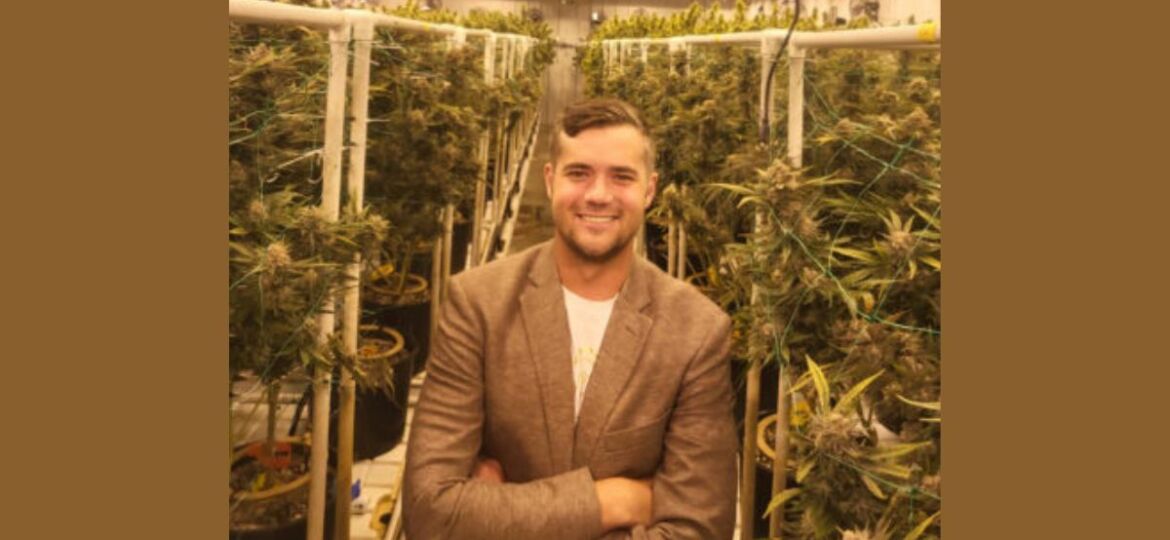

The Arkansas medical marijuana industry experienced record sales last year for the fourth year in a row, and industry leaders think the market will continue to grow despite the uncertainties about changes to marijuana legalization in neighboring states.
While Arkansas voters rejected an amendment to legalize recreational marijuana in the state last year, the state’s medical marijuana industry continued a rapid expansion that began when the first dispensary opened in 2019. Last year, patients spent a record $276.3 million to buy 50,547 pounds of product in the state’s 38 dispensaries.
Advertisement
That’s an increase from the year before, when cardholders spent $264.9 million to buy 40,347 pounds of product. The sales, in both dollars and pounds, have grown each year since the first dispensary opened in 2019.
Advertisement
A pair of taxes associated with medical marijuana brought in a near-record $32,072,444 last year. The state charges a 6.5% sales tax on patient purchases and charges both a 6.5% sales tax and a 4% privilege tax on dispensaries when they make purchases from cultivators.
The sales tax brought in $16,314,986 last year, while the privilege tax brought in $15,757,458.
Advertisement
The combined taxes brought in $33,181,374 in 2021, $21,267,553 in 2020 and $2,900,536 in 2019.
For a variety of reasons, sales and tax revenue don’t match up perfectly, according to Scott Hardin, spokesman for the state Department of Finance and Administration.
Patient cards are also climbing with the Department of Health reporting 89,855 active cards. That’s more than the 79,476 cards reported at the same time the previous year and far more than the 30,000 cards that were initially projected when the program launched in 2019.
Advertisement
So, after four years of sales growth and an increase in patient cards, has Arkansas reached a mature market or is there more growth on the horizon?
“I don’t think we’re at maturity level yet,” said Bill Paschall, director of the Arkansas Cannabis Industry Association. “I do think there are a lot of folks out there that are still learning about the industry and marijuana for medicinal use.”
If trends hold, Arkansas is on track to surpass 100,000 active patient cards this year.
Border states
One point of uncertainty for the industry in the new year is how changes to marijuana legalization in border states will impact Arkansas cannabis businesses. Changes are on the horizon in Missouri, Mississippi and Louisiana, and possibly Oklahoma too.
Missouri voters legalized recreational marijuana in November, allowing adults to begin using marijuana recreationally there last month.
Oklahoma will hold a referendum on recreational marijuana on March 7. The state already has a medical marijuana program with few restrictions and a poll in November showed 49% of voters favoring passage, with 38% opposed.
The Mississippi legislature and governor legalized medical marijuana last year, and dispensaries opened to the patients this week.
Louisiana has also loosened the reins on its medical marijuana program, allowing for the sale of flower, Paschall said. Last year, Louisiana also began allowing patients under other states’ marijuana programs to buy cannabis in Louisiana.
“2023 will be an interesting year to see just what impact those states loosening their restrictions on who may buy will have on Arkansas,” Paschall said. “We have very strong dispensaries in that northwest corner of the state. I anticipate that they’ll be very competitive but making it rec in Missouri – and forecasting they’ll do that in Oklahoma – will present new challenges.”
The state has several dispensaries within a short drive of the Missouri border and all but one sold more than 1,000 pounds of product last year. Dispensaries in Bentonville, Rogers, Eureka Springs, Mountain Home and Hardy are closest to the Missouri border, while dispensaries in Jonesboro and Brookland are about a 40-minute drive from the Missouri boot heel.
The Greenery in Fort Smith and Good Day Farm Van Buren are the closest dispensaries to the Oklahoma border, while a pair of dispensaries in Texarkana and several in Northwest Arkansas are within a short drive of Oklahoma.
Robert deBin, chief executive officer of Natural State Medicinals in White Hall, said the competition from the border is a serious problem for the industry.
“I believe the biggest threat to the state’s cannabis industry is the opportunity for illicit product to enter our state from our more progressive neighbors,” deBin said via email. “Arkansans will be crossing state lines and filling out-of-state coffers. I think most people support keeping money in the Natural State, so I hope we can focus on ways to keep Arkansans’ dollars here at home.”
What’s next?
The state medical marijuana industry is mostly set in place now, with all eight cultivation licenses and all but two dispensary licenses having been issued, although some lawsuits over the licenses are in the hands of courts.
Paschall and deBin expect the market to continue to grow as more Arkansans become familiar with medical marijuana and expect producers to introduce new products.
“We’ll see how all of the different players, the licensees, adapt and change and what product lines they offer, how they price that,” Paschall said. “Those will be things to watch for in the coming year as to how the industry changes.”
deBin said Natural State Medicinals is using new technology to bring new products to market.
“For example, using new cannabis technologies, we’re bringing products like our micro dose mints, topical joint pain solutions, and our new Twisted Tincture mixes which go great with club soda and ice,” he said.
MJBizDaily, a national cannabis publication, posted a dire report recently about the outlook of the industry nationally this year, including layoffs.
In Arkansas, Paschall said he expects producers to expand product lines and expects more overall growth in the industry.
“We’ll see patient growth,” he said. “As competition ramped up, we’ve seen prices fall, so that will be attractive to folks that may not have gotten a patient card at this point. I think with lower prices and expanded product lines we’ll continue to see growth in the industry. I do not think we’ve hit a maturation point.”

